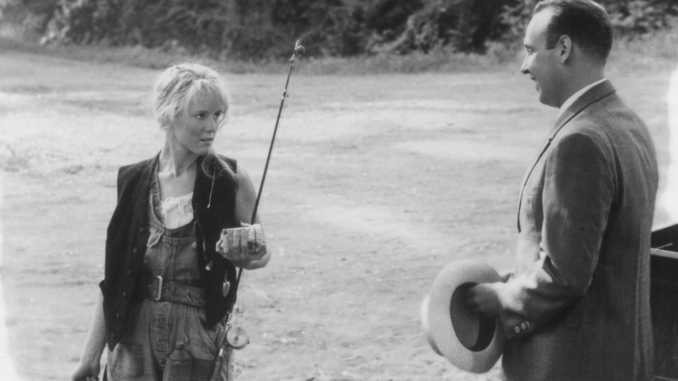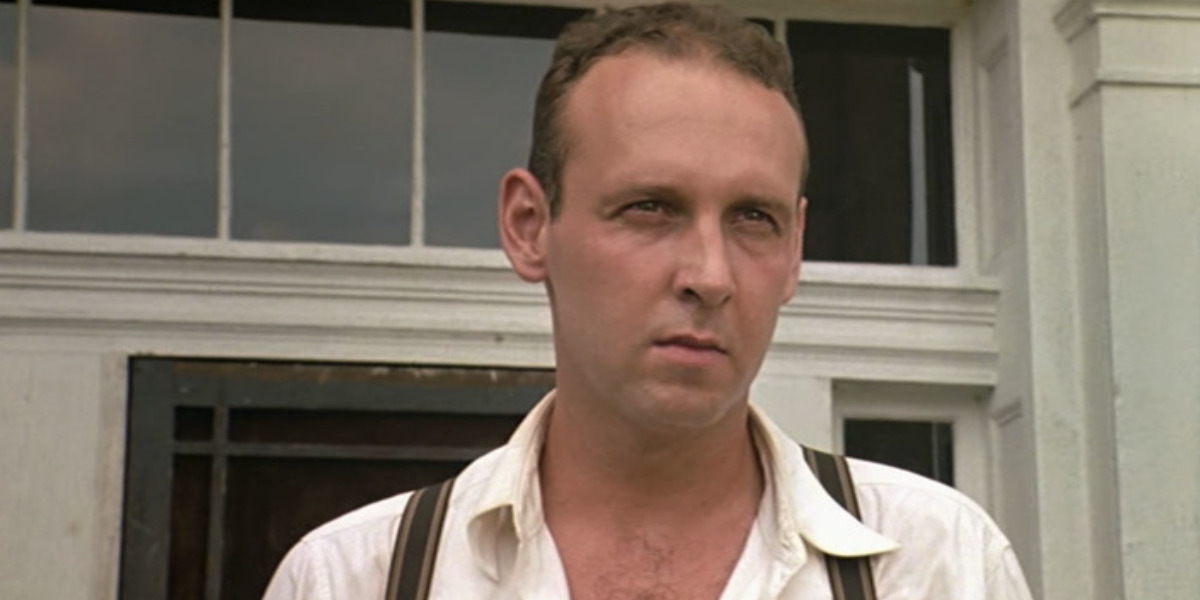
A Dark Turn in a Beloved Southern Tale
When Fried Green Tomatoes premiered in 1991, audiences expected a heartwarming Southern drama about friendship, resilience, and the simple comfort of food. What they didn’t expect was one of the most haunting and controversial subplots of the film: the mysterious death of Frank Bennett, the abusive husband of Ruth Jamison.
This twist transformed the film from a nostalgic character study into a layered story of justice, survival, and female solidarity — and it remains one of the most discussed moments in 1990s cinema.
Frank Bennett: More Than Just a Villain
Frank Bennett was never meant to inspire sympathy. As Ruth’s husband, he embodied cruelty and control, wielding violence to keep her under his power. In an era when domestic abuse was often hidden in silence, his character symbolized not just one man’s brutality but a broader social issue. His very presence in the story was a looming shadow over Ruth’s freedom and happiness.
The Disappearance That Shook Whistle Stop

When Ruth finally found the courage to leave Frank and build a new life with Idgie Threadgoode at the Whistle Stop Café, Frank’s threats escalated. Not long after, he disappeared without a trace. Whispers spread through the small town: Had Frank left? Had he been killed? Or worse, had the community itself taken matters into its own hands?
The script leaves the truth deliberately vague, with a chilling suggestion that Frank’s body may have been disposed of in the café’s famous barbecue pit. It was a shocking implication — part macabre humor, part brutal justice — that gave the story its unforgettable edge.
Justice, Morality, and the Power of Storytelling
The handling of Frank Bennett’s disappearance blurred the line between crime and survival. For audiences, it raised unsettling questions: Was this murder or simply the ultimate act of protection? Could a community united by loyalty and love rewrite justice in their own way?
By not giving a clear answer, the filmmakers allowed the scene to take on a mythic quality. It became less about one man’s fate and more about the strength of women who refused to be broken — and the quiet alliances that formed to shield them.
Why This Scene Endures
More than three decades later, the “barbecue” subplot remains one of the defining features of Fried Green Tomatoes. It is shocking, yes, but also strangely empowering. The suggestion that an abusive man could vanish at the hands of those who loved his victim gave viewers a darkly satisfying sense of justice — one that the legal system of the time might never have delivered.
Ultimately, Frank Bennett’s death is less about the mystery itself and more about what it represents: the courage to fight back, the power of community, and the idea that some stories, no matter how grim, are worth retelling because they shine a light on hidden truths.
